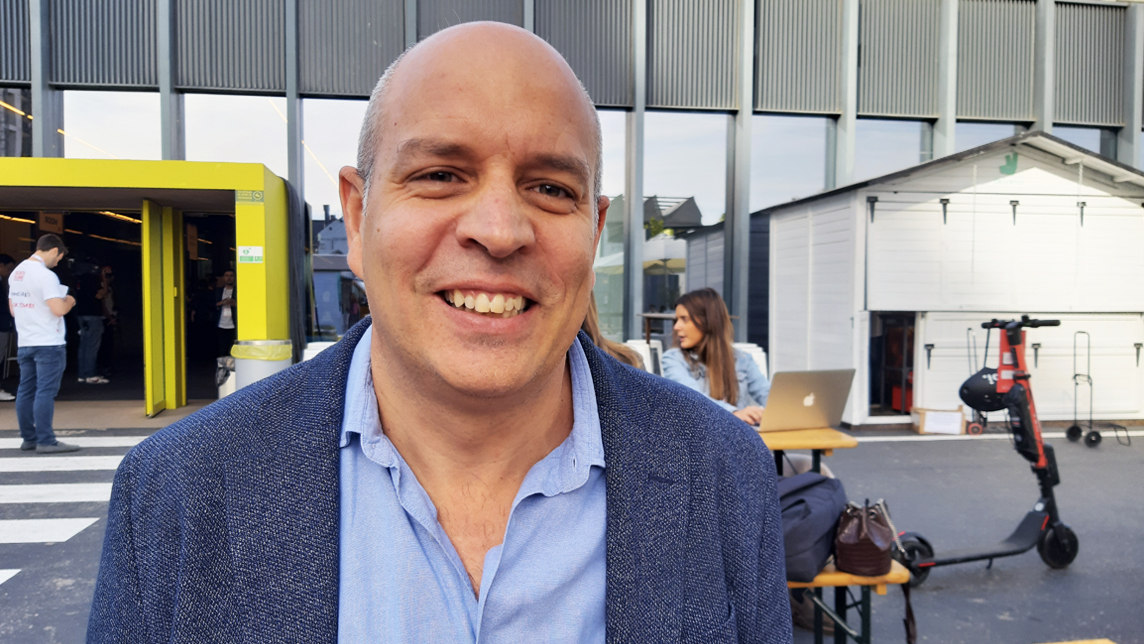A father of three young kids, Victor Sánchez Rodríguez was concerned when he saw that their school wasn't involving them in any digital learning. Instead they were accessing “fun but unsuitable apps” and “getting the worst out of technology,” he said.
“In fact, they were pretty much still using only textbooks at school, as I did 40 years ago, with no tracking or personalization capabilities when the world has completely changed since then.”
Hence the former consultant, who's worked at Boston Consulting Group and PwC, decided to create his own edtech solution, one that would combine better learning materials with technological capabilities "like tracking and analyzing the progress of a child in real time.”
Sánchez launched his startup, Smile and Learn, in 2016, after he had quit his job and spent two years on its development. Today, Smile and Learn is an award-winning educational video and activity online platform for young learners in Spain and Latin America, the “Netflix" of digital education, Sánchez told CompassList earlier at this month's South Summit conference in Madrid, where the startup was a finalist competing in the edtech section.
With millions of individual users, the platform uses AI and ML-based algorithms to provide personalized assessment and instruction for each student, supporting teachers in their work. Smile and Learn is endorsed at the national level by the Spanish Ministry of Education and used by state schools in a growing number of regions.
With global edtech spending forecast to reach US$252bn by 2020, Smile and Learn is raising €4m Series A funding to support its expansion across Spain and LatAm. In particular, it's seeking investors with edtech or B2B SaaS expertise to help it launch in the US, India and China. Besides local partnerships, the edtech will also build on its successful foreign language learning model in Turkey.
Proprietary content in multiple languages
Smile and Learn started with €400,000 contributed by family and friends. Sánchez, the company's CEO and founder, has personally invested €600,000 and holds 91% of the company's equity. In 2016, Smile and Learn received €50,000 from the European Union's innovation program Horizon 2020, with an extra €1.2m secured in 2017.
With 20 or more students per class, teachers cannot be expected to adapt the learning experience to match the ability of every student, the consultant-turned-entrepreneur added. “My main objective is to help teachers to personalize each child's education because in each classroom, kids learn at different speeds and some may need specific help.”
“We are not changing the teachers' methodology. We trust them to know what is right for their students. We are simply giving them better teaching tools to enable them to adapt their methodology for their own students,” he said. Teachers can select a “learning path” created by Smile and Learn, or create their own models from the resources.
Sánchez envisages Smile and Learn to contain everything that a child needs to learn on a single platform. It took two years to develop the edtech's proprietary content, with their first hire being a teacher. “Despite the costs, it just didn't make sense to launch a platform with hardly any new content,” he explained.
Today, the company has six teachers and a 17-strong design team working full time to producing video content and activities that are “attractive, engaging and above all educational; not just for curricula-based learning, but in a 360-degree educational way.”
He was referring to how Smile and Learn integrates both curricula-based and cognitive learning-based materials to provide a holistic education for children ages three to 12.
The curricula-based content is designed according to age, while non-curricula activities related to cognitive learning like language learning or emotional intelligence are not. The latter is based on actual life experiences. The platform hosts more than 4,500 video activities in five different languages: English, Spanish, French, Portuguese and Italian. Arabic and Mandarin will be added in the next two years.
“We first select content that's really global and look at how it's taught in different countries and we go beyond that,” Sánchez' said. For example, the design and education team studied the teaching of the solar system in the US, Spain and Mexico before producing its own lesson version; always seeking to add more value by being more engaging, interactive and offering more information.
The price of a book
Like Netflix, Smile and Learn uses AI to produce content recommendations based on each student's preferences to engage them further into the educational activities. Another program intuits and assesses a child's progress in any given skill or curriculum subject compared to that of similar-aged children. The personalized learning increases as more content is produced to suit the student.
Two further algorithms are still being refined. One is for recommending content based on performance, where the level of difficulty automatically increases when a student is assessed to be good at a particular activity. The other more complex algorithm is to identify the weaker areas, where the student needs to practice more to improve. Collaborative filtering is needed to track the frequency of the child's practice activities compared to those of similar ability children.
For a SaaS package, Smile and Learn charges €25 per device per year – the price of a book but with thousands of activities and assessments, Sánchez said. “We believe high-quality education doesn't have to be expensive and it isn't if you have scale. We can perfectly make a living from €25 per yearly license.”
The company is starting to work with several governments to offer even lower prices for contracts covering 120,000 licenses or more. “Many poorer countries have already invested in the hardware via World Bank support. But they lack in-house materials,” he pointed out. Besides the commitment to low-cost but high-value education, the platform is provided free-of-charge to institutions with little resources, such as special needs educational centers and orphanages in the developing world.
LatAm, US are growing markets
The company currently has 155,000 subscribers, with entire classes of students counted as one subscriber because they access the platform using shared devices.
In addition, there are 1.5m subscribers to Smile and Learn open channels like YouTube that each racks up to 300,000 views per day. Around 70% are based in Spain, but the proportion is gradually decreasing. Latin America, the US, Italy and Turkey are becoming larger markets for open channel views, with Spain only accounting for 5%.
In Spain, Smile and Learn is supported by local governments and schools in five of 17 autonomous regions: Madrid, Murcia, Castilla and Leon, Asturias and Navarre. The company is also offering free trial licenses to centers using shared devices within a particular classroom to boost its user base. During the first year, 60 schools became clients within Castilla and Leon, the first region to use Smile and Learn. This doubled in 2018 and 250 more schools are expected to join by the end of 2019.
In 2016, Massachusetts Institute of Technology (MIT) gave the company an award for its educational efforts in Latin America. In 2018, Smile and Learn became a finalist for the Best Open Educational Resources at London's BETT Awards, the largest edtech fair in the world. With more funding and success at South Summit 2019, the company is ready to take the leap into the global arena.











